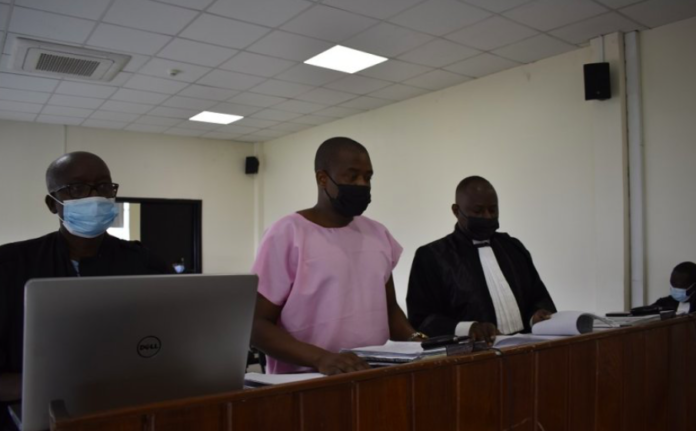In a recent court session in Kigali, Rwanda, on February 6, 2024, journalist Dieudonné Niyonsenga, popularly known as Cyuma Hassan, made a return to the courtroom to appeal for a retrial of his case, following a conviction in 2021 where he was sentenced to seven years in prison on charges he has denied. Cyuma’s request for a retrial is not only notable for its implications on freedom of expression and the press in Rwanda but also for the procedural aspects it highlights within the Rwandan judicial system.
During the court proceedings, Cyuma, citing discomfort due to a leg injury, requested to be allowed to sit, describing the discomfort he experienced while being transported to court in a manner he likened to being packed “like bananas in a truck.” The presiding judge, however, adhered to the standard courtroom protocol that requires defendants to stand while addressing the court and denied the request on the grounds that there was no medical certificate presented to justify the need for sitting.
Cyuma’s defense, led by attorney Gatera Gashabana, argued for the necessity of having the case heard by a panel of three judges instead of one, which is currently the case. This request was communicated through the court’s digital system, underscoring the defense’s belief that the gravity of the case and the interests of justice would be better served by a broader judicial perspective. Gashabana emphasized that this was not a critique of the law allowing a single judge to preside over cases but rather a specific request given the circumstances surrounding Cyuma’s case.
The prosecution responded by defending the decision to assign a single judge, suggesting that the president of the court had likely found this arrangement to be appropriate. However, Gashabana contended that a retrial with a three-judge panel would offer Cyuma the best chance for a fair hearing, presenting it as the last opportunity for justice for his client.
The judge expressed concerns about the timing of the request, noting it was submitted through the judicial system just one day before the hearing, hinting at procedural reservations about such last-minute submissions. After a brief adjournment, the judge announced the postponement of the trial to allow the president of the court time to respond to the defense’s request, indicating that the court would later announce a date for the continuation of the proceedings.
The courtroom was attended by individuals including Cyuma’s father, Primien Rukebesha, and representatives from foreign embassies, including those of the United Kingdom and the United States. Rukebesha, who resides in the northern part of Rwanda, expressed his commitment to supporting his son, emphasizing the family’s desire for justice and the challenges posed by repeated postponements of the trial.
































































